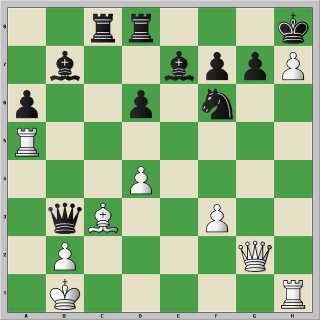I re-read most of "Road to Chess Improvement" by Grandmaster Alex Yermolinsky. This is one of my favorite books for the advanced player. I recommend it to mainly adult players, or very advanced junior players (with a high reading level). I just ordered three more chess books from Amazon.Com:
Chess for Zebras by Jonathan Rowson
Seven Deadly Chess Sins by Jonathan Rowson
Chess Explained: The Classical Sicilian by Alex Yermolinsky
The first two books are supposedly very good. They have a lot to do with the psychology in chess from what I understand.
The Yermolinsky book is an opening book, and I normally hate to buy opening books because I do not believe they help someone of my level too much (being proficient with chessbase and fritz). Apparently this is a different style of opening book. The author uses a rare approach to teaching the opening, in that he does not focus on variations. He shows games in the opening, and really tries to explain the middle game that result from the opening. Most opening books just concentrate on feeding the reader with the "best" theoretical moves, and how to achieve an advantage or equality once you reach the middle game. This is not a bad thing, but I can do this on my own with chessbase. For a lower rated player, this can be quite useful. These types of opening books help lower rated players (around 1400-2000). I must also point out that I really like Yermolinsky's writing style, as he is absolutely hillarious! In his Road to Chess Improvement book I was laughing out loud many times, and chess books very rarely make people do that. I also had the pleasure of playing Yermolinsky once in the North American Open in Las Vegas a few years. It was a very interesting game (it can be found in most databases, including www.chessgames.com).
I plan on playing in the Texas State Championship and the National Open for sure, and I'm most likely going to play in the World Open. Over the summer I will be in Houston for the majority of the time, but I do plan on going home to Ann Arbor Michigan and also to Dallas.
This is White to play and force mate in 5 moves.
 Mate in 5 might sound difficult, but this one isn't too hard. Hint: Every move is check.
Mate in 5 might sound difficult, but this one isn't too hard. Hint: Every move is check. 